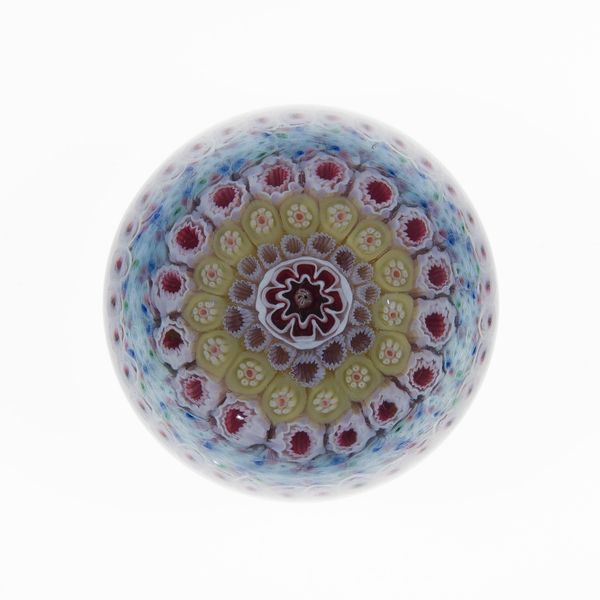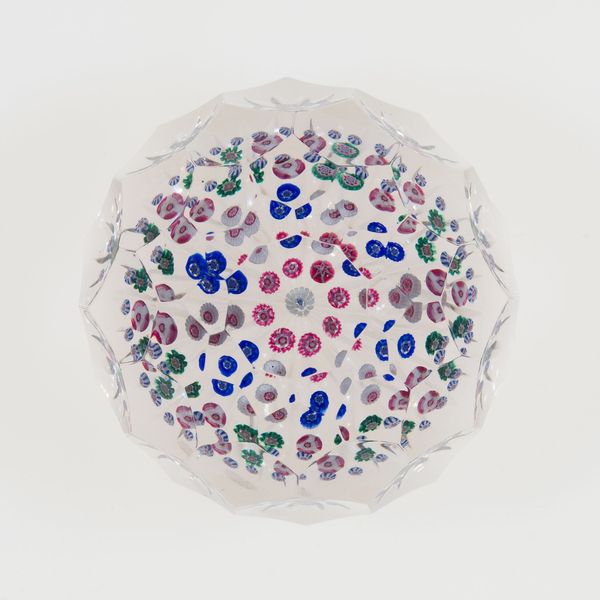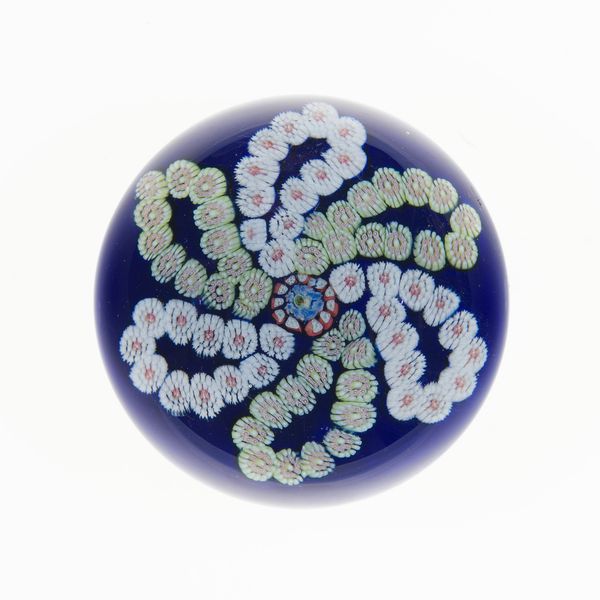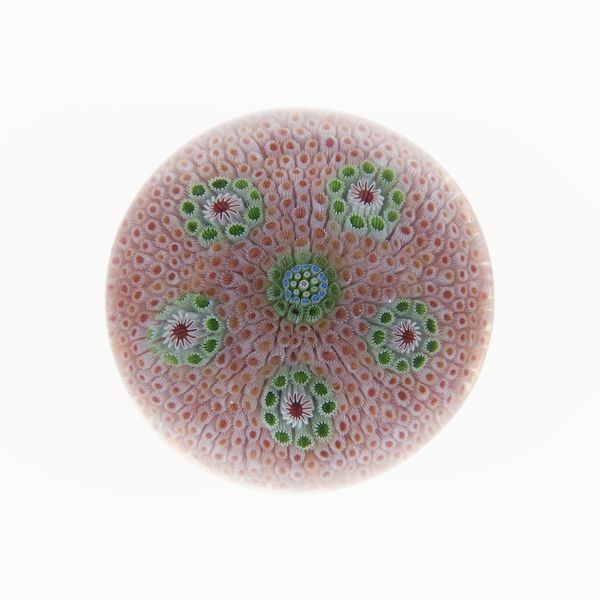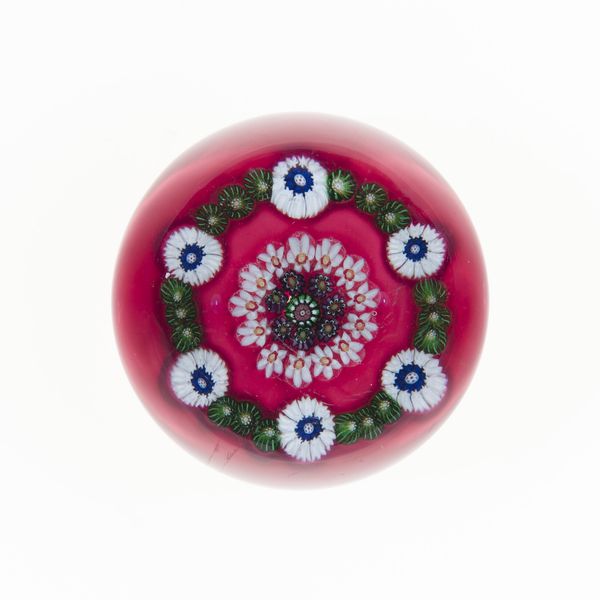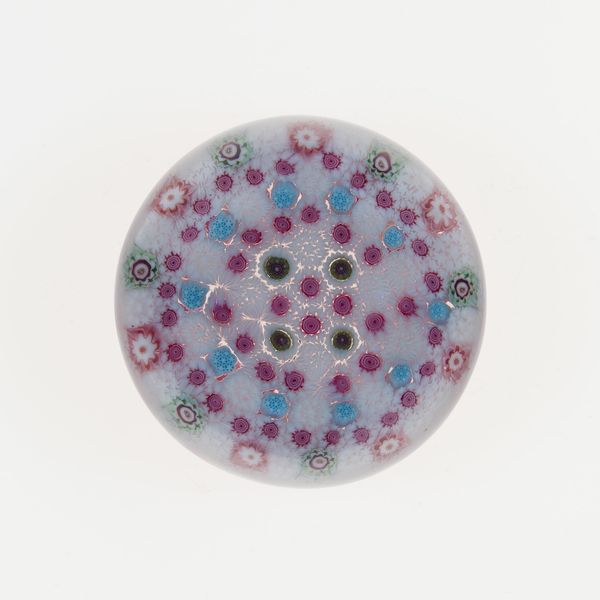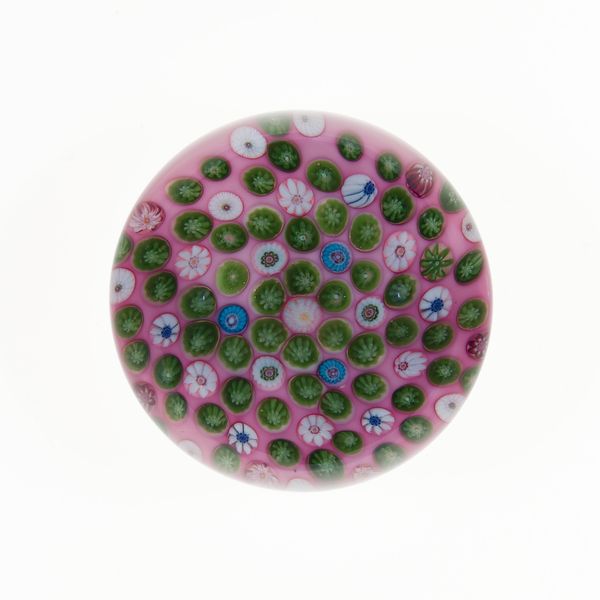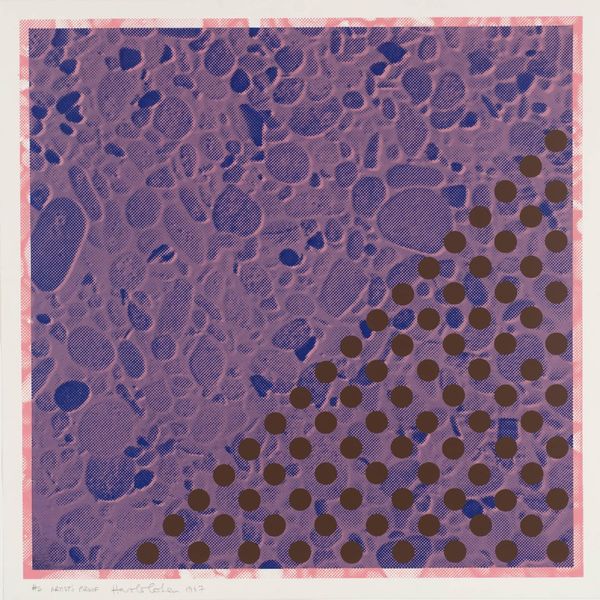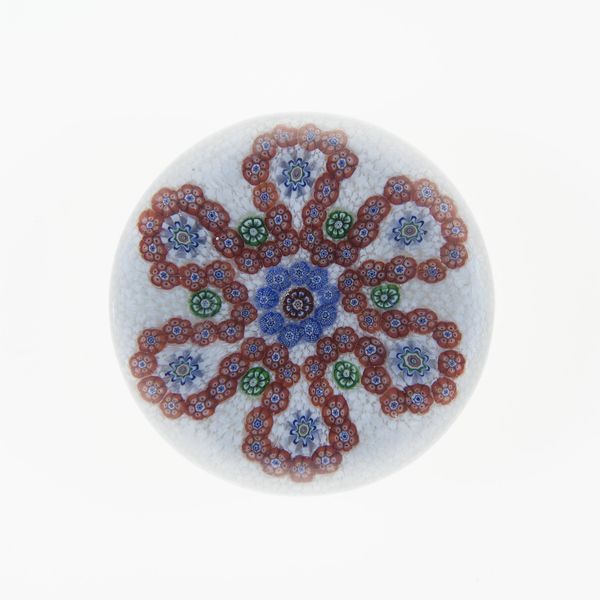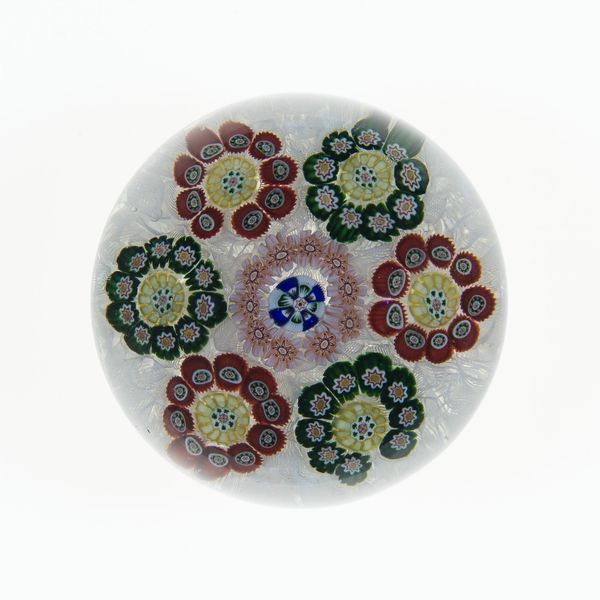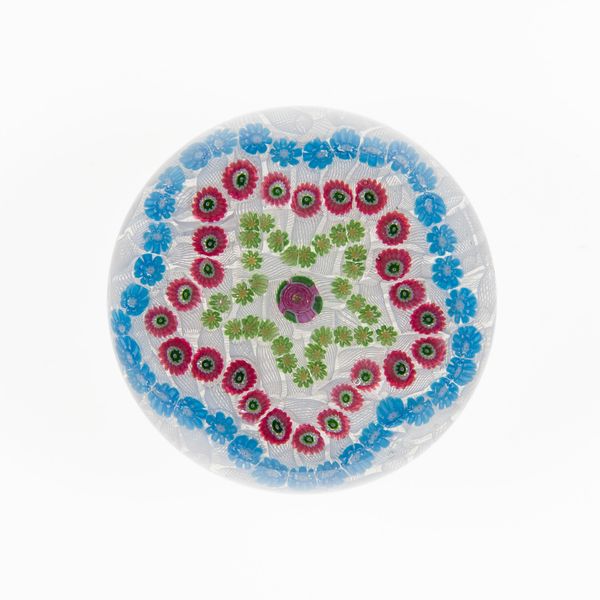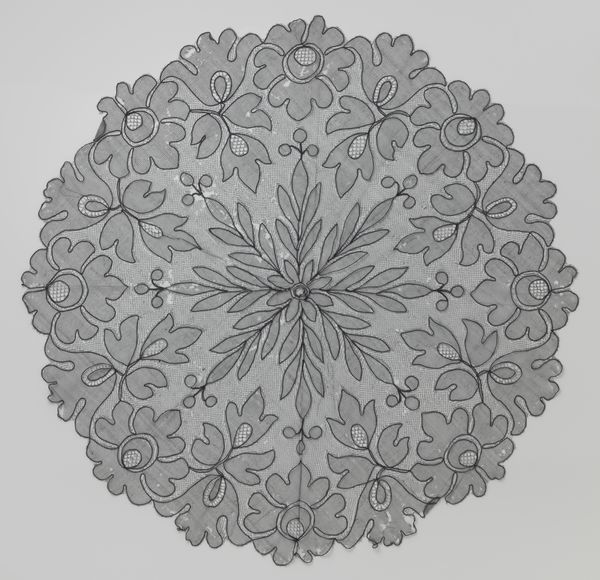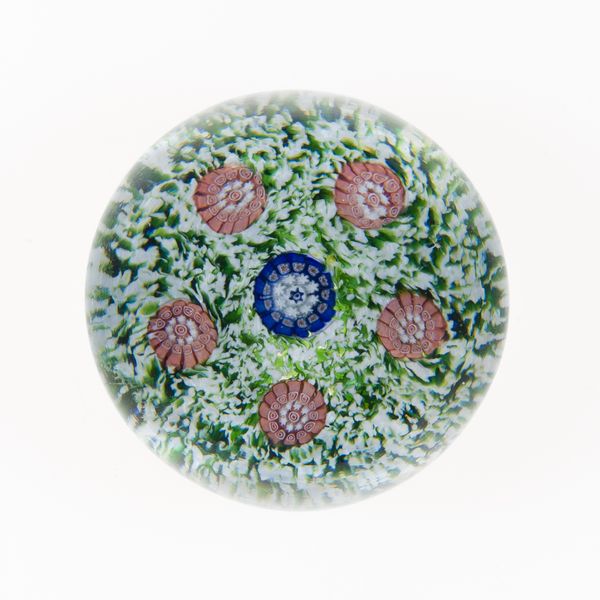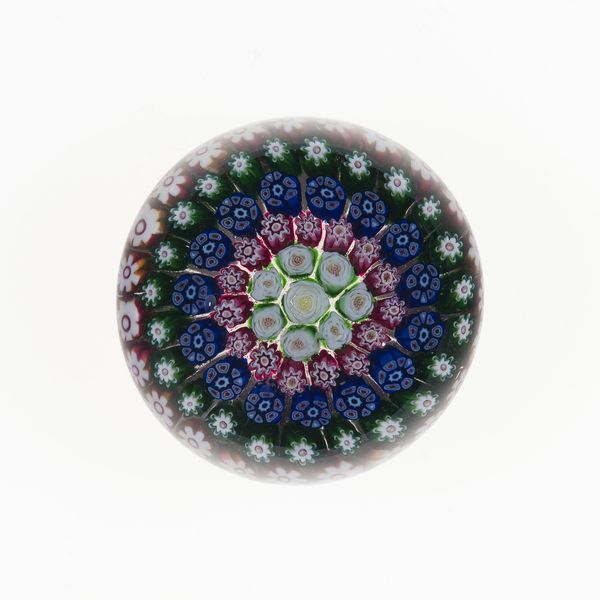
assemblage
#
organic
#
assemblage
#
organic pattern
#
flower pattern
Copyright: Courtesy of the office of Rashid Al Khalifa
Editor: Rashid Al Khalifa’s "Les Roses de Bagatelle" appears to be an exploration of flower patterns, executed with acrylic paint and ink, perhaps even en plein air. The repetition is interesting...What resonates with you most deeply in this work? Curator: What I find compelling is how Al Khalifa seems to engage with the Pattern and Decoration movement. Considering the historical context, this movement challenged the established art world's rigid hierarchies that often devalued art traditionally made by women, and from non-Western cultures. This piece seems to subtly reclaim the decorative, asking us to reconsider its inherent value. Do you think there is something inherently feminine about floral patterns? Editor: That’s a fascinating connection. I hadn’t thought about the gendered aspect of it. It does have a very ‘girly’ aesthetic. It makes you think if he is commenting on this, or simply participating in it. Curator: Precisely. And in this participation, we can unpack societal expectations and constructed roles. Khalifa might be pushing us to consider: who gets to define 'high' art, and why? How does a motif like the rose become coded as feminine and how does deploying it impact that coding? Do you feel that his being a male artist affects the interpretation of the piece? Editor: I hadn't really thought about the artist's gender and how it impacts my viewing, but you're right, it adds another layer to the dialogue around this work. I also want to know about his own relationship to this artform as an artist. It makes you think about broader gender issues. Curator: Exactly. And by situating his work within that historical and social discourse, we can spark conversations about the intersections of identity, gender, and cultural value in art. We have questioned how the gendered lens influences artistic interpretation! Editor: Absolutely, thank you. It is great to discover these historical and social connections. It provides us with much richer understandings.
Comments
No comments
Be the first to comment and join the conversation on the ultimate creative platform.
